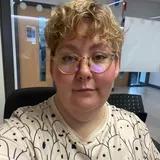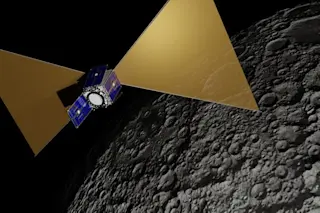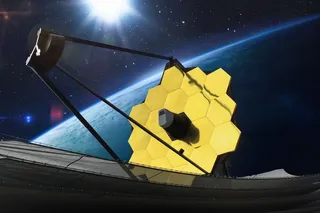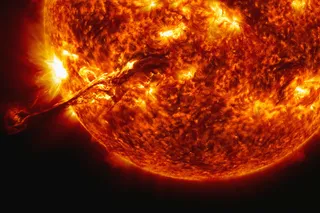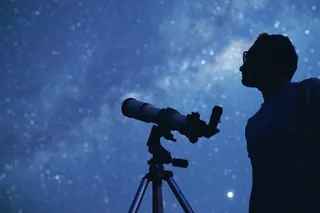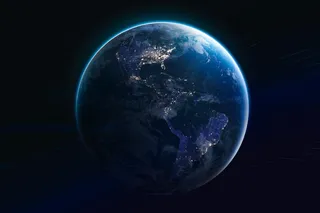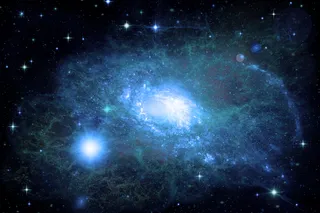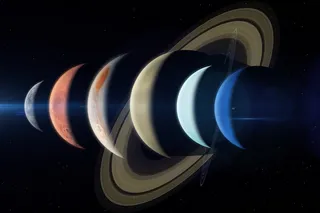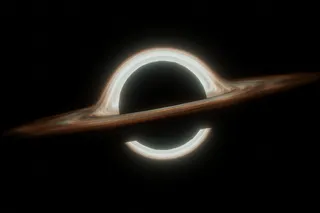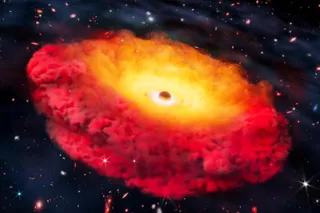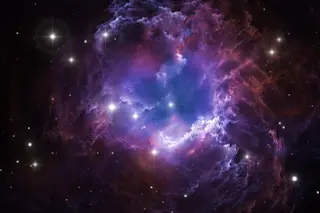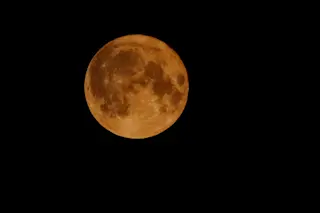Secrets from the beginning of the Universe are being whispered throughout space — and now, we know where to listen.
A team of astronomers plans to send a mini spacecraft to the far side of the moon in order to listen for radio signals from the cosmic Dark Ages, which is the least understood epoch of the Universe’s history. They presented their out-of-this-world plan at the Royal Astronomical Society’s National Astronomy Meeting 2025.
Why do we need to go to the dark side of the moon to hear these whispers? Earth is much too loud, with atmospheric and electronic interference drowning out these cosmic radio signals.
“It’s like trying to hear that whisper while a loud concert is playing next door. This makes it really hard to pick up on those faint signals from billions of years ago,” said Eloy de lera Acedo, head of Cavendish Radio Astronomy and Cosmology at the University of Cambridge, in a press release. “To detect a special radio signal that comes from hydrogen — the first, most basic, and most abundant chemical element — in the early Universe, we need to be quiet.”
Read More: Sound Waves From the Big Bang Suggest Earth Is Sitting Inside of a Void
Ancient Whispers and Cosmic Dark Ages
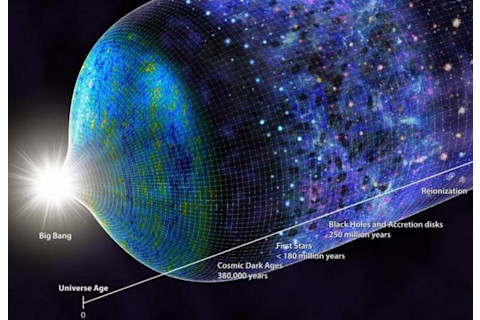
Depiction of the Dark Ages era of the universe, right after the Big Bang, and before the formation of the first stars and galaxies. (Image Credit: University of Colorado, Boulder)
University of Colorado, Boulder
Understanding more about the cosmic Dark Ages — the period immediately after the Big Bang, but before the existence of any stars or galaxies — can help us unlock space mysteries, such as dark matter and the evolution of the Universe.
Although there is a lot we do understand about the Universe’s structure, the Dark Ages aptly remain a hidden spot in this story. If we are able to shine a light on this mysterious period of time by picking up its radio signals, we will have an unprecedented view of how the stars and galaxies in the night sky were formed.
“It’s incredible how far these radio waves have travelled, now arriving with news of the Universe’s history. The next step is to go to the quieter side of the moon to hear that news,” said David Bacon, a researcher from the University of Portsmouth, in the press release.
Introducing CosmoCube — The Universe Whisperer
The spacecraft being sent to hopefully pick up these space whispers is called the CosmoCube. It will journey to the far side of the moon, where it’ll be shielded from all of the noisiness of Earth. In this silence, astronomers believe the CosmoCube will be the first to hear these billion-year-old stories.
CosmoCube will be expertly crafted to pick up on the ancient radio signals, working through both a precision-calibrated radio radiometer and a satellite platform in lunar orbit. With these low-frequency tools, the spacecraft can filter out all the noisy energy and capture the almost imperceptible signals that hold the history of the early Universe.
“By doing this, CosmoCube aims to help us better understand how our Universe transformed from a simple, dark state to the complex, light-filled cosmos we see today, with all its stars and galaxies,” said Lera Acedo in the press release. “Crucially, it will help scientists investigate the mysterious dark matter and its role in shaping these cosmic structures.”
The CosmoCube is already in development, and the prototypes have been undergoing environmental testing. The team hopes to officially launch the project shortly, with the goal of CosmoCube reaching lunar orbit by 2030.
Read More: Water Levels on the Dark Side of the Moon are Drier, but Give Insight to Its Evolution
Article Sources
Our writers at Discovermagazine.com use peer-reviewed studies and high-quality sources for our articles, and our editors review for scientific accuracy and editorial standards. Review the sources used below for this article:


